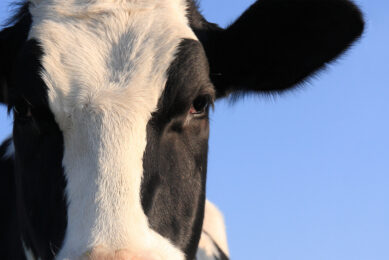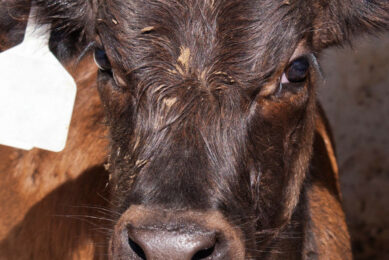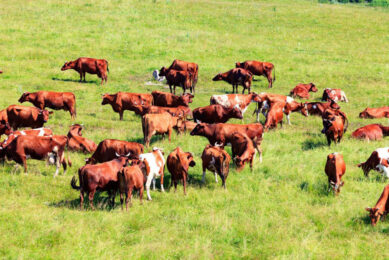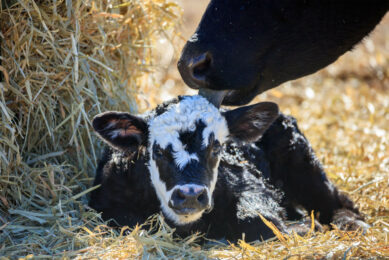Feeding beef and sheep in the Scottish Highlands
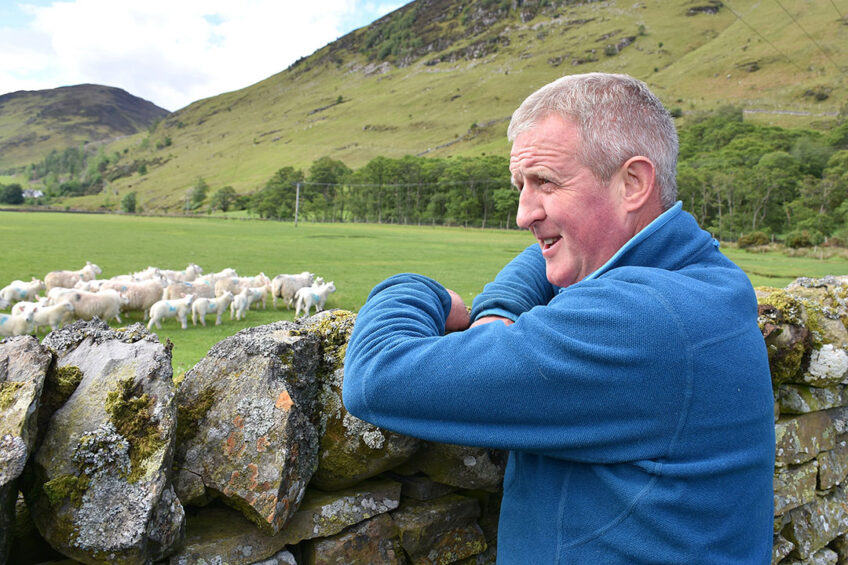
Farming in the Scottish Highlands can be classed as one of the more challenging environments to make a living but when the land and livestock work in harmony the results can be good.
Scott Renwick is quite a busy farmer running his own beef and sheep farm at Inverbroom in the north west of the country, while also managing a neighbouring estate farm and carrying out contract sheep gathering and shearing.

Together with his son Farquhar and nephew Gavin MacDonald, Scott runs 35 Luing cows, which is a cross between the famous Highland cattle breed and the Beef Shorthorn. He also runs 2,000 North Country Cheviot ewes and sells the lambs as stores to lowland farmers for them to fatten on the better quality grasses. Scott’s farming area extends to 20,000 acres of hill land rising from sea level to a height of 3,275 feet taking in some very hostile land for managing livestock on. He also has 300 acres of better quality land as well.

Luing: A breed in its own right
The Luing breed was founded by the Cadzow brothers on the Island of Luing in Argyll off the west coast of Scotland in 1947 when they crossed the Beef Shorthorn, well known for its fleshing qualities, and the Highland Cattle, regarded for its ruggedness and hardiness. After almost 20 years of breeding evolution, the British Government officially recognised the Luing as a breed in its own right in 1965. The breed’s hardiness and adaptability makes it perfect for Mr Renwick’s farm and his cattle are in big demand on sale days. “We run 35 Luing cows in our Lochbroom pedigree herd to produce offspring for sale,” said Mr Renwick. “As we are very busy during the summer period shearing sheep we need a cattle breed that can be left on its own on the hill and the Luing fits that bill perfectly. “The temperament of the Luing breed is very good. When the cattle come off the hill they can sometimes be a little nervous but that’s because they are not so used to human contact. “Mostly, though, they are very calm and do grow well on the hill. We sell the females at pedigree sales and they can make around £2,600 (€ 2,907) each at 2 years old as bulling heifers. “We also rear and sell the young bulls which can sell for over £5,000 (€ 5591.65) each depending on the animal. We have 2 young bulls in the herd at the moment which should do quite well,” he added.
Success in sheepdog trials
This year Scott achieved a 115% lambing rate from his flock of North Country Cheviot sheep which is ideal for him given the conditions of the terrain. “Some of the ewe lambs are kept as replacements,” said Mr Renwick. “The remainder are sold as store lambs for fattening and usually sell for £50 (€ 55.92) per head at that stage.” With all that land mass to cover to collect cattle and sheep he and his team rely on a number of good dogs that make the task somewhat easier. All told, they have 12 dogs on the farm each trained to round up the cattle and sheep when required. Mr Renwick has also had some success in sheepdog trials having captained the Scottish dog trial team in 2009.

Mr Renwick attempted his first trial at Gairloch in 1980, just after he left school. He came second in the local section and was hooked from then on. He made the Scottish team with his dog Queen in 2009 and the next year, with Queen’s daughter Roci he won the Scottish National at Ballinluig and went on to captain the team at the World Trial at Lother Park, Penrith. He said: “The trial dogs are not given any special treatment. They gather the high hills and work with cattle just like the rest of them. “Quad bike access is limited further out on the hill, so a team of good dogs is imperative on the steep hostile slopes, which form part of the Fannich range of mountains.”

Working with beef and sheep is rewarding
Working alongside his son and nephew, who farms 3,000 acres at Clachan Farm, a separate business, the 3 work as a team. They contract gather for neighbouring farms and estates and carry out contract dipping and shearing. In total, the trio will dip around 25,000 sheep in their mobile dipper each year which is another good source of income on this traditional hill farm in the Highlands of Scotland. Mr Renwick’s son Farquhar started working on the farm immediately after leaving school and enjoys every moment of it. “I’m only 21 and am learning a lot from my dad and cousin,” he said. “I also work part-time driving a digger for a local contracting company. “Working with the beef cattle and sheep is very rewarding. It is good to be following the footsteps of our family generations on this farm.”
Join 13,000+ subscribers
Subscribe to our newsletter to stay updated about all the need-to-know content in the dairy sector, two times a week.



